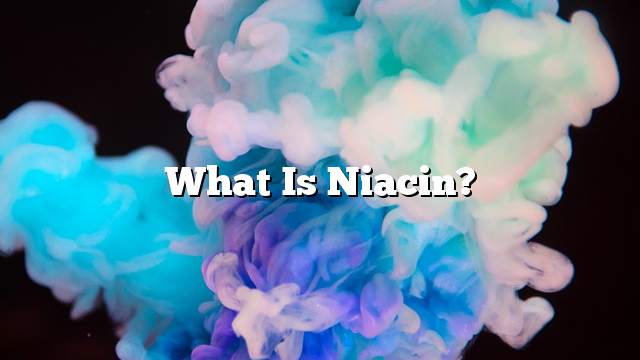Niacin
Vitamin B3, also known as nicotinic acid, is a B vitamins that dissolve in water. , And in this article we will show you the benefits and signs of lack and increase.
Benefits of niacin
- Prevents inflammation and heart problems.
- Reduces the level of harmful cholesterol in the blood.
- Reduces low-density lipoproteins and triglycerides.
- Protects atherosclerosis by producing a chemical compound known as histamine, which helps to expand blood vessels and stimulate blood circulation in the body.
- He fights diabetes because it contains a chemical known as niacinamide.
- • Improves the effectiveness of some types of oral narcotic therapies because they contain niacinamide.
- Prevents osteoporosis.
- Delays the appearance of signs of aging; because it contains anti-aging.
- Maintains skin health, safety and moisture.
- Prevents the appearance of pills and pimples.
- He fights skin cancer.
- Increases hair growth and prevents its fall.
- Helps children grow within the normal range.
- Helps in oxidation reactions within the body, important for breathing cells.
- Helps to form red blood cells.
- Activates and improves memory.
- Helps to produce energy, also contributes to the metabolism of carbohydrates, fats and proteins.
- Maintains the health of the nervous and digestive system.
- Helps to manufacture sex hormones.
Food sources of niacin
Niacin is found in meat and seafood, such as tuna, salmon, and vegetables such as potatoes, beans, fruits, such as mushrooms, mango and various types of protein-rich foods. They contain tryptophan, nuts, peanuts, almonds, legumes, Such as lentils, sunflower seeds.
Amount of niacin in the body
Daily needs of niacin
- children: Of 2-12 milligrams.
- Women: 14 milligrams.
- Men: 16 milligrams.
- Pregnant and nursing: 18 milligrams.
Signs of lack of vitamin niacin
The lack of niacin occurs as a result of the problem of absorption in the digestive system, or due to lack of eating in foods, which leads to the incidence of many symptoms, including:
- Indigestion.
- General fatigue.
- Depression.
- vomiting.
- The emergence of some gastrointestinal, nervous, and skin disorders, such as the appearance of thick red pigmented skin layers when exposed to sunlight, and memory problems.
Signs increase the rate of niacin in the body
- Dry hair, falling.
- The appearance of some skin cracks, redness of the skin, itching.
- stomach pain.
- Increased liver enzymes, thus causing liver poisoning.
- Increased heart rate.
